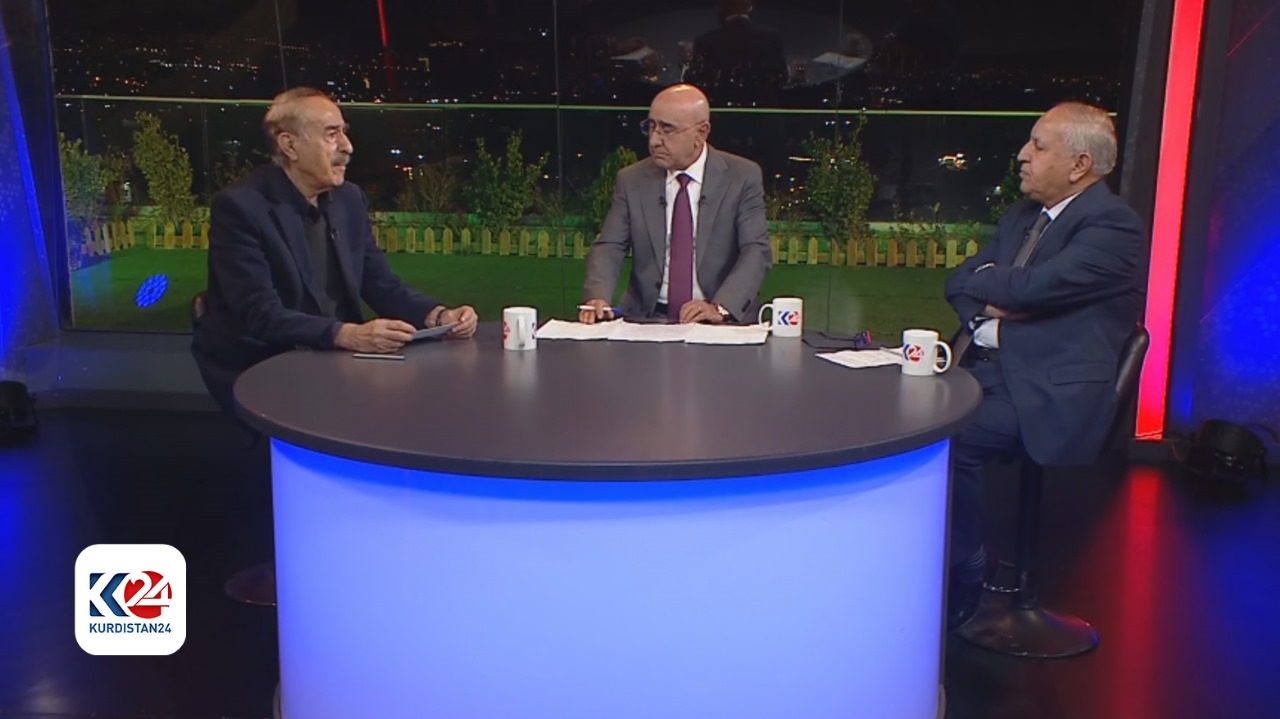Uprising Anniversary Sparks Debate on Kurdistan's Future and Iraq's Evolution

ERBIL (Kurdistan 24) - Today commemorates the 33rd anniversary of the mass uprising in Sulaimani against the Ba'ath regime. This event marked the liberation of the city and the end of the Baath regime's rule.
Kurdistan24 organized an exclusive debate in Sulaimani featuring politician Salar Aziz and writer-political observer Azad Tofiq. Both shared their perspectives on the day of uprising and its aftermath, emphasizing that contemporary Iraq reflects a continuation of the Iraq at time of its creation, driven by a chauvinistic mentality.
Delving into the historical uprising and the present circumstances, the significance of Prime Minister Masrour Barzani's visit to the United States was highlighted. Both believed to have generated substantial lobbying support for the Kurdistan Region.
Salar Aziz asserted that the people of the Kurdistan Region have consistently demonstrated their resilience against enemies, maintaining a strong spirit of resistance and defense.
He pointed out that, “although a new government has emerged in Iraq, expectations of opposition to the Kurdistan Region persist. However, the dynamics of such opposition have shifted; the Baath regime assaulted Kurdistan through bombings, and now different attacks occur, a type that is accompanied by ‘Allahu Akbar’ cries.”
Azad Tofiq contended that the chauvinistic Arab mentality, originating in the 1920s, clashed with Kurds and other communities in Iraq and has been incompatible.
“This incompatibility is so evident that the name ‘Iraq’ does not have a geographic origin, rather a political one. Iraq did not politically exist prior to 1920 and becomes one only after this date,” he argued.
He argued that, “Iraq, as a political entity, only took shape after 1920, driven by the division of Sunnis, Shiites, and Kurds. Thus, the incompatibility and inconsistency stretch to 2003. And even after 2003, the same chauvinistic mentality, in a different religious form, takes hold of the political reins in Iraq.”
Highlighting the historical context, Tofiq stressed that the current Iraqi regime, leaning towards religious fascism, is an extension of the 1920s mentality. He criticized its reluctance to condemn past crimes and compensate victims.
Salar Aziz asserted that the Kurdish achievements in post-2003 Iraq result from a balance of power, preventing dominance by Shiites and Sunnis. Even if they had succeeded, Aziz argued that, “recognition of Kurdish rights in the constitution would not have been granted.”
Azad Tofiq emphasized the broad implications of Prime Minister Masrour Barzani's U.S. visit, seeing it as lobbying for American support for both a strong Kurdistan. “But also, a strong Iraq,” he noted.
A strong Iraq, according to Tofiq, implies democracy and protected rights, aligning with a robust Kurdistan Region in various aspects.
Both Salar Aziz and Azad Tofiq, with their experience, expressed optimism about the future of the Kurdistan Region, Iraq, and the broader region. They forecast positive changes and developments, providing clarity for a more positive future amid ongoing transformations.
